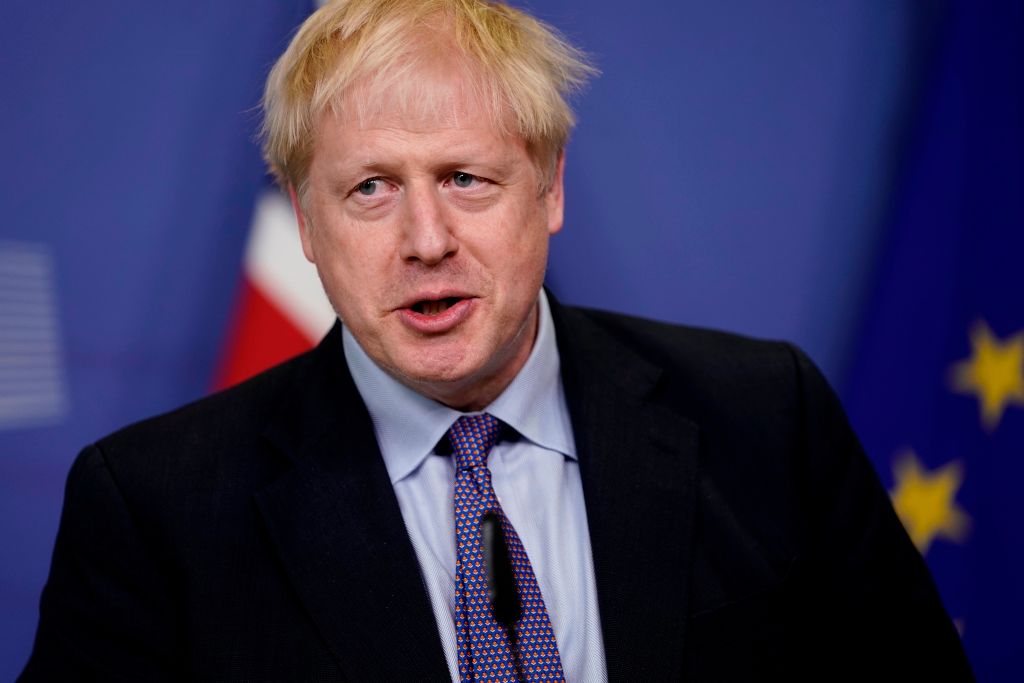Boris Johnson has been criticised for sending the European Union a letter conveying his real opinion about a Brexit extension along with a photocopy of the letter Parliament dictated and forced him to send. Yet the Prime Minister was entirely justified – and right – in doing so.
Parliament certainly can – and should – decide what a Government is allowed to do. But no parliament can tell a prime minister what to think, what to feel or what to believe. And the consequences of MPs attempting to do that could quickly backfire.
Take the European Union. Dealing with the EU is the role of the executive. When my government decided to withdraw Iceland’s application for EU membership, it was an executive decision. Parliamentary approval was not sought. Had the Icelandic parliament considered this unacceptable it could have decided to oust the government and call for an election. But it didn’t because the decision had majority support. We were much criticised for not seeking parliamentary approval. In the face of that criticism, we pointed out that parliament had not submitted the application for EU membership. The application had been submitted by the previous government in accordance with standard procedures.Admittedly the parliament of the time had accepted a government proposition that Iceland should apply for EU membership. However that was only a parliamentary resolution accepted by members, and even ministers, who stated that they felt that parliament should support the decision in order to prove that EU membership would not suit Iceland. In other words, there was not a parliamentary majority in support of membership. An amendment suggesting that a referendum should be held to ask whether Iceland should apply for membership was narrowly defeated.
Had the public decided to apply for membership in a referendum it would have been democratically and politically impossible for the government to withdraw the application. But as things stood there was no democratic mandate for the EU application other than the decision of a government that had lost its majority. Although this example might seem removed from the discussion around Boris Johnson’s letter, a similar principle is at play. It boils down to what goes wrong when the legislative tries to push around the executive or dictate what it should think. There is also a broader problem and I wonder whether those who feel the EU’s modus operandi of dealing with the executive should be watered down realise what that would entail. What would happen if the EU had to deal with 28 or 27 national parliaments rather than the governments of those countries? Certainly it might be more democratic, albeit not as democratic as if the EU had to abide by national referenda. A referendum must always be seen as the highest power in any democracy (although history does not suggest that this is a premise accepted by the EU).In any case, the precedent set by deciding that a national parliament is the proper interlocutor of the EU would be extraordinarily disruptive for the EU. It would seem uncharacteristically brave for the EU to enter that new world. It would also make the day-to-day function of the EU virtually unmanageable.
So it is vital to remember that it is the role of the British executive – led by the PM – as in the case of all the 28 countries in the EU, to deal with Brussels. The UK Parliament is not in a position to prevent that, neither democratically, morally nor practically. And if it doesn’t like the way the prime minister is doing things, it should put its money where its mouth is and call an election.
Parliament cannot dictate the opinions of a Prime Minister or decide what a government should consider right. If a government implements a policy that Parliament finds unacceptable it can offer guidance. If that doesn’t work, and a government is out of line with the will of the Parliament, it can bring down the government. This is the natural interchange between the legislative and executive branches of government. To disrupt it would have bad consequences for democracy – and for the EU. David Gunnlaugsson is a former prime minister of Iceland





Comments